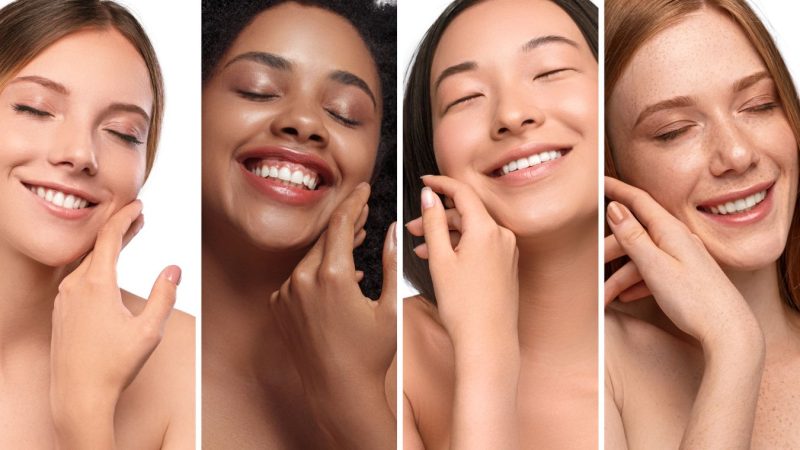Let’s have a real talk about something super fundamental in the world of skincare: skin types. You hear it all the time, right? “Oily skin,” “dry skin,” “combination skin”… but what does it all mean? And more importantly, why should you even care?
Well, understanding your skin type is like having the cheat sheet to your skin’s unique needs. It’s the first step in building a routine that actually works for you, and it’s something that every skincare professional (and enthusiast!) should have a good grasp of.
So, from The Skin Games HQ, where we see all kinds of amazing skin and the incredible treatments that cater to them, let’s dive into an expert (but totally digestible!) guide to understanding the various skin types:
The Classic Four (Plus a Special Guest!):
Think of these as the main categories your skin will likely fall into.
- Normal Skin: Ah, the unicorn of skin types! Normal skin is often described as balanced. It’s not excessively oily or dry, feels smooth, and usually doesn’t experience frequent breakouts or sensitivity. The pores are typically small and barely visible. It’s that “just right” feeling – not too shiny, not too tight.
- Oily Skin: If you often find yourself reaching for blotting papers by midday, you probably have oily skin. This skin type produces excess sebum, which can lead to a shiny appearance, especially in the T-zone (forehead, nose, and chin). Oily skin is also more prone to enlarged pores, blackheads, and breakouts. While it might feel like a constant battle against shine, oily skin tends to age slower and is often well-hydrated (just maybe too hydrated with oil!).
- Dry Skin: Dry skin feels tight, sometimes even flaky or rough. It lacks natural oils and moisture, which can make it feel uncomfortable and appear dull. You might notice more visible fine lines, and the skin can sometimes feel itchy or irritated. Dry skin often has smaller, less visible pores. Factors like genetics, environment, and even certain skincare products can contribute to dryness.
- Combination Skin: This is where things get a little more interesting! Combination skin means you experience characteristics of more than one skin type, typically oily in the T-zone and normal to dry on the cheeks. It can be a bit of a balancing act, as different areas of your face have different needs. You might find your forehead and nose get shiny, while your cheeks feel tight or even flaky.
- Sensitive Skin (The Special Guest!): While not technically a “type” in the same way as the others, sensitivity is a common skin condition that can affect any of the above types. Sensitive skin reacts easily to certain products, ingredients, or environmental factors. This can manifest as redness, itching, burning, or dryness. It’s all about the skin barrier being a little more delicate and prone to irritation.
It’s Not Always Black and White (Factors That Can Influence Your Skin):
It’s important to remember that your skin isn’t static! Factors like hormones, the weather, your diet, stress levels, and even the products you use can influence how your skin behaves. You might find your skin feels more oily in the summer or drier in the winter.
Why This Matters (From The Skin Games Perspective!):
As professionals in the skincare industry, understanding these nuances is absolutely crucial. Accurate skin analysis is the foundation of any effective treatment. Being able to identify a client’s primary skin type and any underlying conditions like sensitivity allows us to tailor treatments and recommend products that will truly make a difference. It’s about going beyond a one-size-fits-all approach and truly understanding the individual needs of each person’s skin.
Your Turn: Get to Know Your Skin!
The best way to figure out your skin type is to pay attention to how your skin feels and looks throughout the day. Observe if you get shiny, feel tight, or experience any sensitivities. Don’t be afraid to experiment (gently!) with different products to see how your skin reacts.
Understanding your skin type is the first step towards a happier, healthier complexion. And for all you aspiring skincare pros out there, mastering this knowledge is key to becoming a truly amazing esthetician!

